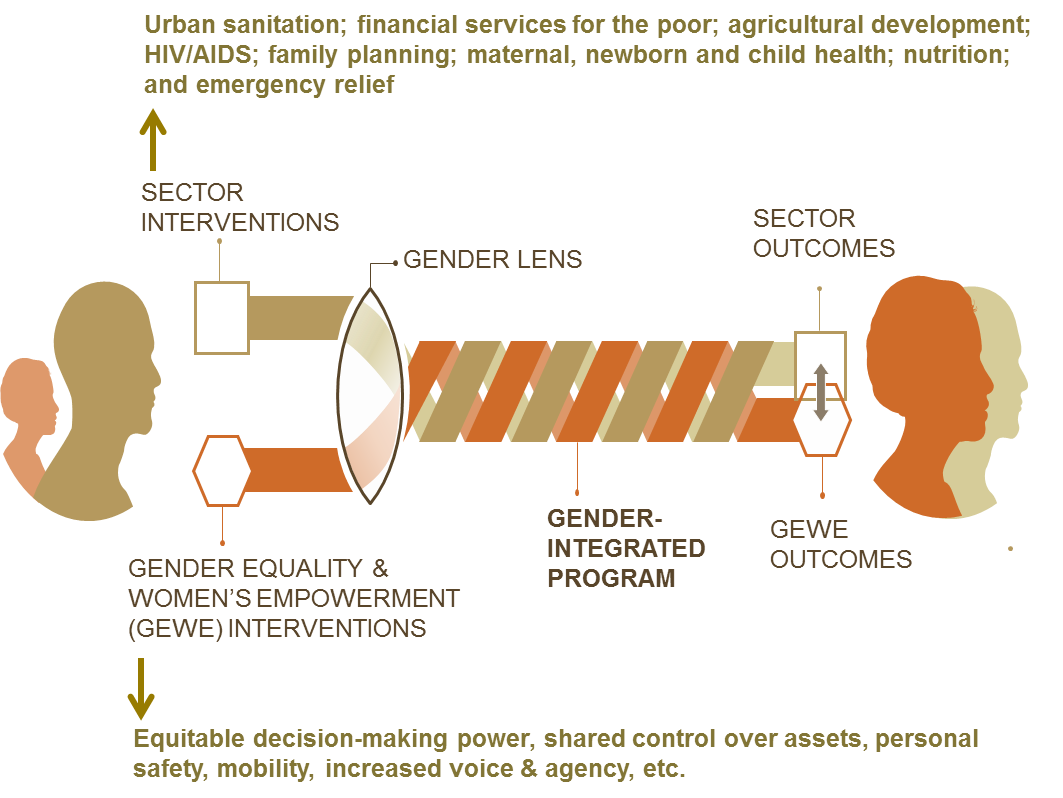Dr. Gary L. Darmstadt is a Senior Fellow, for the Bill & Melinda Gates Foundation's Global Development Program.
Sarah Henry is a Senior Consultant with Global Health Visions.
Luca lives in pursuit of equality for all human beings by providing health, social and educational opportunities for the most vulnerable and marginalized people around the world.
Over the last decade the Grand Challenges family of programs has fostered innovation and partnership to address some of the world's most difficult global health and development challenges for the poor and marginalized. This week, as part of an exciting evolution at the Bill & Melinda Gates Foundation, we are launching a new Grand Challenge to more effectively reach and empower the most vulnerable women and girls.
This will be our first Grand Challenge on gender equality and women's and girls' empowerment, and it signals a more concerted push to put women and girls at the center of our work.
As Melinda Gates advanced in a recent publication in Science Magazine at the Gates Foundation we are committing to being more intentional about addressing gender inequalities and enhancing women's and girls' empowerment. Being unintentional about gender issues - essentially ignoring gender inequalities - causes many development projects to fall short of their objective, and in the worst instances exacerbates gender inequalities and does harm. And when development organizations do not focus on women's empowerment, they neglect the fact that women empowered with agency and voice - the ability to make decisions about their own life and act on them to achieve a desired outcome, free of violence, retribution, or fear - have the potential to transform their societies. As Melinda expressed in her commentary, we recognize that many other organizations have been working ardently to address gender inequalities for a long time. We committed to joining partners more actively in addressing and confronting inequalities for women and girls as a fundamental right, as well as a key driver of improved health and social and economic progress.
Smart development intentionally addresses and integrates a gender equality perspective alongside sector interventions and measures the impact of health and development programs. Measures, however, not only include sector outcomes - such as contraceptive prevalence rates, agricultural productivity or access to digital financial services - but also gender outcomes - such as equitable decision-making power, shared control over assets and income, personal safety, mobility, and equitable interpersonal relations (Figure 1).

Putting Women and Girls at the Center of Development seeks to accelerate understanding of how to effectively address gender inequalities and empower women and girls, and how to better measure women's and girls' empowerment. Although program approaches to improve gender equality and women's empowerment do exist, we need to better understand how to do this most efficiently and under what conditions the various approaches will be most effective. That is why we have focused the Grand Challenge on developing and testing solutions and generating evidence for approaches - particularly on how to promote equitable decision-making - that are sustainable and cost-effective, with potential for scale. We understand that to achieve gender equality between the sexes we need to engage and transform the attitudes and beliefs of men and boys and encourage and support solutions targeting and engaging them as partners and agents of change.
Among the different approaches to promoting gender equality and women's empowerment, in this first round call for proposals, we have the greatest interest in moving beyond the evidence associating equitable decision-making with improved health and development outcomes to better understanding how to go about achieving equitable decision-making at individual, household and societal levels. However, we also welcome good ideas on other effective approaches that lead to increased women's and girls' agency and voice (e.g., control over assets/resources, personal safety, mobility, equitable interpersonal relationships).
We are encouraging multisectoral (e.g. nutrition, agriculture, sanitation, etc. working together) projects that intentionally and effectively address gender inequalities and empower women and girls while improving outcomes in more than one sector. Putting Women and Girls at the Center of Development is a collaborative initiative involving technical and financial contributions from 11 teams at the Bill and Melinda Gates Foundation, representing one of our most collaborative investments ever launched across Agriculture; Water, Sanitation and Hygiene; Financial Services for the Poor; HIV; Strategy, Measurement and Evaluation; Integrated Delivery; Nutrition; Family Planning; Maternal, Newborn and Child Health; Emergency Relief; and the India Country Office. This is part of a broader effort in which we are trying to come together as a Foundation and with our partners and global innovators to put women and girls at the center of our work.
The challenge will fund larger and longer awards ($2.5M over 4 years) as well as smaller exploratory grants ($500K over 2 years). Awards will require low and middle income country leadership, and women-led applications will be particularly encouraged. Based on the results of the 2014 challenge call, we have the potential to issue subsequent rounds as the evidence dictates and we are encouraging funding partners to join us in further supporting and shaping this challenge.
It is our hope that “Putting Women and Girls at the Center of Development” will create opportunities to develop and test bold ideas leading to concrete and effective solutions benefiting women and girls as well as men and boys, and empowering women and girls as agents of change in their families, communities and societies. We also envision the development of new partnerships spanning the fields of gender, global health and development, leading to the creation of a community of practice where partners and grantees collaborate to exchange experiences, overcome challenges and build on each other's successes. We know this will be a long and difficult path, but this represents the first step we are taking to address what we believe is a monumental grand challenge that must be tackled in order to fulfill our mission of helping all people lead healthy and productive lives.